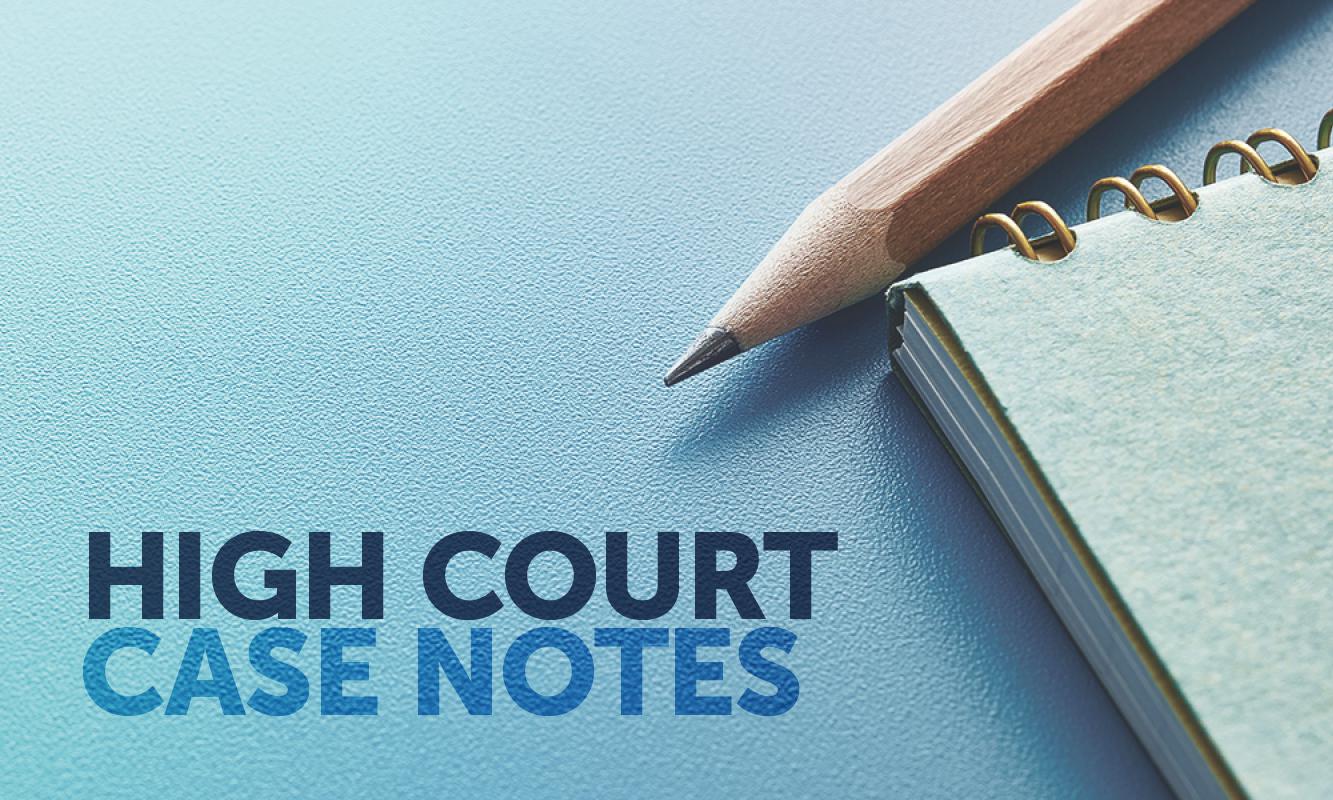In Crime and Corruption Commission v Carne [2023] HCA 28 (13 September 2023) the High Court was essentially required to answer two questions.
First, whether s8(1) of the Parliament of Queensland Act 2001 (Qld) (“POQ Act”) precluded the Court of Appeal from making a declaration concerning a report prepared by the Crime and Corruption Commission (“Commission”).
Second, whether the Commission’s report was a “report” for the purposes of s69(1) of the Crime and Corruption Act 2001 (Qld) (“CC Act”).
The respondent (“Mr Carne”) relevantly held the office of the Public Trustee of Queensland from March 2016 until his resignation in July 2020. In 2018, the Commission received an anonymous complaint alleging that Mr Carne had been involved in corrupt conduct and was guilty of maladministration.
The Commission started an investigation into the allegations. The Commission referred certain information to the Attorney-General for the Attorney-General to determine whether to take disciplinary action against Mr Carne. The Attorney-General suspended Mr Carne’s appointment and began a “show cause” process. This process was terminated some months later when Mr Carne resigned.
The Commission also made some recommendations to the Acting Public Trustee as to the operation of the Public Trust Office. But the Commission did not propose that any criminal action be taken against Mr Carne. The Commission prepared a report which it sought to make public by requesting the Parliamentary Crime and Corruption Committee (“Committee”) to direct that the report be given to the Speaker of the Legislative Assembly pursuant to s69(1)(b) of the CC Act.
In correspondence with the chairpersons of the Committee, the Commission explained that it considered that it ought to publicly report on the matter because, among other things, it had attracted a lot public interest. Mr Carne commenced proceedings to prevent the tabling of the report.
The primary judge (Davis J) dismissed Mr Carne’s application. Mr Carne appealed and the Court of Appeal by majority (McMurdo and Mullins JJA, Freeburn J dissenting) allowed the appeal and declared that the report was not a report for the purposes of s69(1) of the CC Act.
The Commission successfully appealed to the High Court. The High Court unanimously dismissed the appeal, answering both questions in the negative. Keifel CJ, Gageler and Jagot JJ delivered their reasons in a single judgment. Gordon and Edelman JJ delivered a separate joint judgment in which they reached the same conclusions as Keifel CJ but chose to express their reasons in a different way.
As to the first question, the High Court did not consider that s8(1) precluded the Court of Appeal from making a declaration concerning the report because, the High Court found, the Commission made the report for its own purposes.
Section 8 of the POQ Act provides that “The freedom of speech and debates or proceedings in the Assembly cannot be impeached or questioned in any court or place out of the Assembly”.
Section 9(1) of the POQ Act defines “proceedings in the Assembly” to include “all words spoken and acts done in the course of, or for the purposes of or incidental to, transacting business of the Assembly or a committee”.
Section 9(2) of the POQ Act enumerates several matters that form part of “proceedings in the Assembly”. This includes preparing a document for the purposes of, or incidental to, giving evidence before, or submitting a document to, the Assembly a committee or an inquiry – s9(2)(e). Keifel CJ, Gageler and Jagot JJ held, at [34], that the question here is whether the report was prepared for the purposes of doing the business of the Committee and that this was “largely a question of fact”. Keifel et al, at [35]-[36], accepted that the connection with the business of the Committee had to be a “functional connection”. That is, the preparation of a document for the Committee was, alone, not enough – there had to be a connection to the work of the Committee at the time the report was prepared. Keifel CJ et al, at [38]-[39], observed that the Committee did not authorise the report, instead the Commission prepared the report for the purpose of making it public.
As to the second question, the High held that the report was not for the purposes of s69(1) of the CC Act – or any other provision of the CC Act.
Section 69(1) identifies the kinds of reports that can be tabled, which relevantly includes, at s69(1)(b), a “research report or other report that the parliamentary committee directs be given to the Speaker”. Keifel CJ et al held, at [68], that the sole source of the Commission’s power to report on a particular investigation is contained in s49 of the CC Act. And, as their Honours observed, at [64], the Commission’s power in s49 can be exercised only in the limited circumstances specified there (which the report does not meet).
Dr Michelle Sharpe is a Victorian barrister practising in general commercial, real property, disciplinary and regulatory law. The full version of these judgments can be found at www.austlii.edu.au.








Share this article